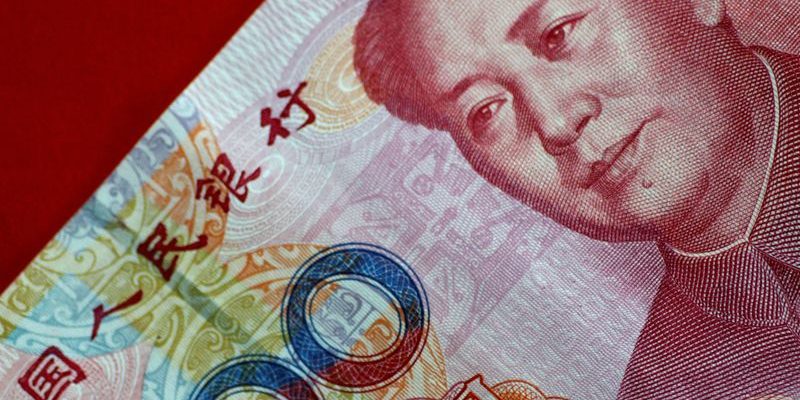
HONG KONG (Reuters) – The yuan was under pressure against the dollar on Thursday, giving up some initial gains as markets digested a Reuters report that China is considering allowing a weaker yuan to weather the tariff risks.
Prior to the market opening, the People’s Bank of China set the midpoint rate, around which the yuan is allowed to trade in a 2% band, at 7.1854 per dollar, little changed from the previous session and 584 pips firmer than a Reuters’ estimate.
The spot yuan opened at 7.2578 per dollar and was last trading 32 pips lower than the previous late session close and 1.1% weaker than the midpoint, shedding the morning’s earlier gains.
Reuters reported on Wednesday, citing sources, that China’s top leaders and policymakers are considering allowing the yuan to weaken in 2025 as they brace for higher U.S. tariffs when Donald Trump returns to the White House.
The yuan and currencies across Asia fell on the dollar following the news on Wednesday.
Financial News, the PBOC’s publication, subsequently published an article saying the foundation for a “basically stable” yuan exchange rate remains “solid,” and that the currency is likely to stabilise and strengthen towards the end of this year. That report helped the yuan claw back some of its losses.
“It is unsurprising that Chinese authorities are considering the option of allowing currency weakening, as this is a classic response to offset the impact of tariffs,” said Rong Ren Goh, a portfolio manager in the fixed income team at Eastspring Investments.
However, he expects a controlled, gradual adjustment of the yuan rather than a sharp, unchecked depreciation that could destabilise financial markets.
Nevertheless, the Chinese currency has depreciated for 10 straight weeks, weighed by U.S. President-elect Trump’s tariff threats and monetary policy divergence between China and the United States.
The offshore yuan traded at 7.269 yuan per dollar, up about 0.16% in Asian trade.












